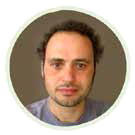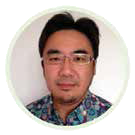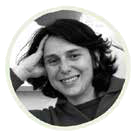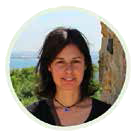During my Marie Curie Project, my host country was... France
Fidel Costa (from Spain), Keisuke Hatada (from Japan), Sarah Magalhães (from Portugal) and Arianna Picciali (from Italy) worked on their Marie Curie Project in France… some very much enjoyed their stay, whereas others faced unexpected difficulties while there. If you’re thinking of working in Voltaire’s country, get some tips here!
 Fidel Costa |
 Keisuke Hatada |
 Sarah Magalhães |
 Ariann Picciali |
An attractive country for researchers
Working on the development of a theory and a programme on Ballistic Electron Emission Microscopy (BEEM) spectroscopy, Hatada was happy to settle in Rennes because there was a team working on his topic.
Costa studies volcanic rocks, quantifying the processes related to the release of sulphur emissions into the atmosphere, and what the release involves. He says the laboratory where he worked in Orléans is among the leaders in the study of volcanoes.
“During my Marie Curie fellowship I studied the upper atmospheres of Venus and Mars using data acquired by two successful European missions: Mars Express and Venus Express,” says Picciali. The laboratory where she worked in Guyancourt, close to Paris, has many competences in plenary atmospheres and gave her plenty of opportunities to improve her skills at work and to enlarge her professional network.
Magalhães studies the mechanisms underlying the evolution of specialisation in plant-feeding arthropods and was happy to work under her post-doc supervisor’s direction in Montpellier.
French way of life and way of work
According to Picciali, France has excellent centres of research; he points out the investments made to foster innovation. Magalhães emphasises the country’s high levels of scientific culture, saying, “French people are very analytical. They like to discuss science in depth. I think this comes from a high investment in education.”
Hatada noticed however a lack of collaboration between different fields in France, whereas Costa admits that his position of postdoctoral Fellow was unclear to most researchers and administrative staff, which generated some misunderstandings and therefore inconvenience, for example in relation to attendance at meetings.
Last but not least, Costa used his time in France as an opportunity to learn about its food delicacies, cheeses and wines!
Things to know about French administration
For the attention of the Fellows who would like to come to France, Costa advises: “Don’t try to start your fellowship in August or September!” because most administrations are not responsive, due to long summer holidays.
As you may probably know, a certificate showing your place of birth is required. Hatada struggled to obtain this document as it is not commonly used in Japan.
Regarding health insurance, both Picciali and Costa encountered difficulties in getting the “Carte vitale” for which they had to wait between six months and one year. One piece of advice would be to take care of this issue as soon as possible after arriving in the country.
Hatada highlights that he is still waiting for a document that will ensure him a stay permit and Picciali points out with amusement that she had to provide unexpected documents like a declaration of non-polygamy!
Parlez-vous français ?
All of our Fellows agree that speaking the language of the country is indispensable. According to Magalhães “They speak French most of time, compared to the Netherlands where I did my Ph.D and where everything was in English”. Picciali echoes this: “Even if not obligatory, I think however that it is very important to learn French, this will help to strengthen contacts with colleagues and with the world outside the laboratory.” Now that her fellowship has ended, Picciali is still working in France and to her, “the best is yet to come”!